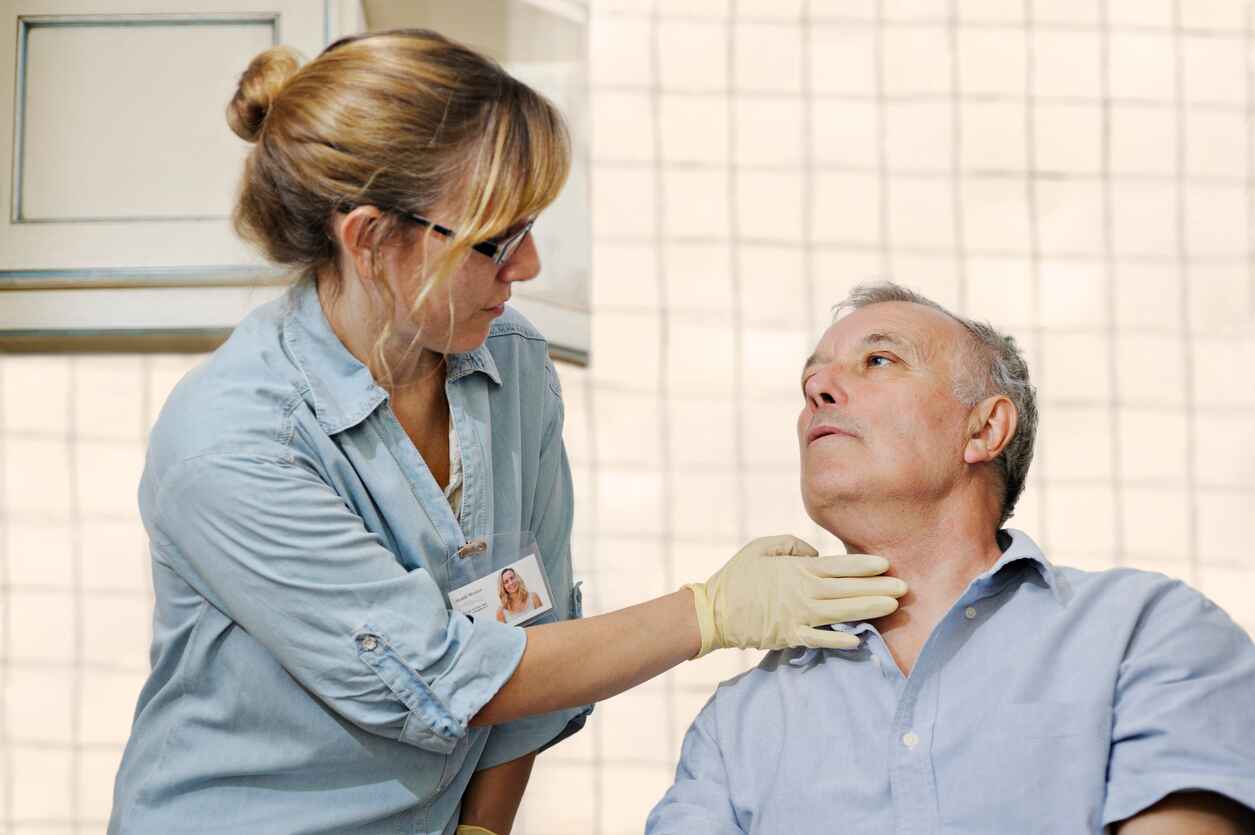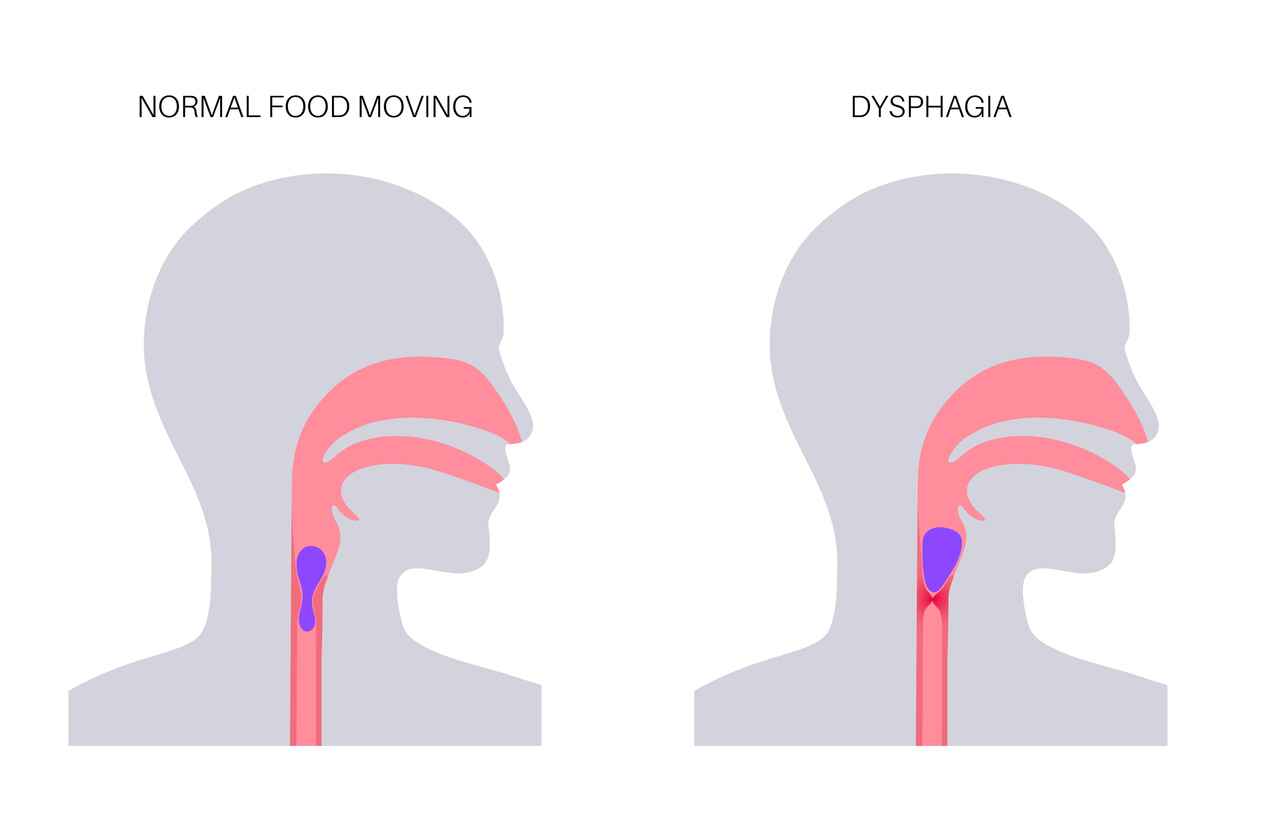
Having Difficulty Swallowing: When to See a Gastroenterologist
Difficulty swallowing, also known as dysphagia, can be confusing and uncomfortable. Whether it’s the feeling of food getting stuck, persistent coughing during meals, or trouble swallowing liquids, these symptoms can seriously affect your daily life. Some swallowing problems are minor and manageable, but others may signal serious issues that need medical attention. Here, we’ll explore the causes of swallowing difficulties, when to see a gastroenterologist, and what to expect from treatment.
Understanding Swallowing Difficulties
Swallowing issues can have many causes. Two common ones are laryngopharyngeal reflux (LPR) and gastroesophageal reflux disease (GERD). Although they are similar, knowing their differences can help you find the right care.
Laryngopharyngeal Reflux (LPR)
Laryngopharyngeal Reflux (LPR), also known as “silent reflux,” occurs when stomach acid reaches the throat and voice box. Symptoms may include a sore throat, mild hoarseness, and a chronic cough. There may also be difficulty swallowing or a lump-like sensation in the throat. Many people with LPR don’t experience heartburn, making it harder to identify.
Gastroesophageal Reflux Disease (GERD)
GERD involves stomach acid frequently flowing back into the esophagus, causing heartburn, chest pain, difficulty swallowing, and food regurgitation. While GERD primarily affects the esophagus, it can also lead to swallowing problems.

When to See a Gastroenterologist
Deciding whether to see a gastroenterologist or an ear, nose, and throat (ENT) specialist can be tricky. Here are a few tips to help guide you:
- If your swallowing issues come with heartburn, food regurgitation, or chest pain, you may be dealing with GERD, which is best treated by a gastroenterologist.
- If your main symptoms include hoarseness or a lump sensation in your throat, you may want to see an ENT for a diagnosis.
- If your swallowing problems are frequent or severe—especially if you’re losing weight or avoiding certain foods—you should consult a doctor immediately.
In some cases, both a gastroenterologist and an ENT may work together to provide the best care, especially if GERD and LPR overlap.
How Gastroenterologists Diagnose Swallowing Difficulties
Gastroenterologists have a variety of tools to diagnose swallowing issues. Common procedures include:
- Endoscopy: A flexible tube with a camera is used to look inside your esophagus, stomach, and upper small intestine.
- Barium Swallow: You swallow a contrast material while X-rays are taken to show how your esophagus works during swallowing.
- Manometry: A test that measures the pressure and coordination of your esophageal muscles.
- pH Monitoring: A test that measures acid levels in your esophagus to diagnose GERD or LPR.
Treating Swallowing Difficulties
Once your doctor finds the cause of your swallowing problems, they can create a treatment plan. It may include:
- Medication: Drugs like proton pump inhibitors (PPIs) or H2 blockers to reduce stomach acid and relieve symptoms.
- Diet and Lifestyle Changes: Avoiding trigger foods, elevating your head while sleeping, and making other changes can help prevent reflux.
- Endoscopic Procedures: Minimally invasive treatments like esophageal dilation or stent placement may be necessary to fix structural problems.
- Surgery: In severe cases, surgery, like fundoplication, might be needed. It can strengthen the lower esophageal sphincter and stop reflux.

Lifestyle Modifications for Managing Swallowing Difficulties
In addition to medical treatment, lifestyle changes can play a crucial role in managing swallowing difficulties. Small changes in daily habits can help reduce symptoms and improve swallowing comfort for those dealing with GERD or LPR. Consider the following tips:
- Eat smaller, more frequent meals: Large meals can increase pressure on the esophagus, worsening reflux and swallowing problems. Try eating smaller portions throughout the day.
- Avoid lying down right after eating: Stay upright for at least 2-3 hours to help prevent acid from traveling back up into the esophagus.
- Watch what you eat: Certain foods and beverages—like spicy foods, caffeine, alcohol, and fatty or fried items—can trigger reflux symptoms. Keeping a food diary to track how different foods affect you can help you make better choices for your digestive health.
- Stay hydrated: Drinking water throughout the day helps soften food. This makes it easier to swallow and reduces the risk of food getting stuck in the esophagus.
- Manage stress: Stress can exacerbate gastrointestinal issues, including reflux. Incorporating relaxation techniques like deep breathing, meditation, or yoga can help manage stress and support digestive health.
These lifestyle changes may alleviate symptoms and prevent future flare-ups, contributing to better management of swallowing difficulties.

When to Seek Immediate Medical Help
If you experience any of these warning signs, seek medical attention immediately:
- Difficulty swallowing both solids and liquids
- Sudden onset of swallowing problems
- Unintended weight loss due to difficulty eating
- Frequent coughing, choking, or aspiration during meals
- Chest pain or discomfort when swallowing
These could indicate a more serious issue that needs urgent care.
Navigating Complex Swallowing Problems
Some cases of swallowing difficulties may require more specialized care. If you have frequent or severe symptoms, your gastroenterologist may work with other specialists to fix the problem. For example, speech-language pathologists can assess and treat swallowing issues. Nutritionists can help you maintain a balanced diet if you’re having trouble eating. Working with a multidisciplinary team ensures you receive the most comprehensive care.
Contact Us for Care
Swallowing difficulties can be frustrating, but you don’t have to face them alone. With the right care, many people can regain comfort and enjoy meals again. At GastroMD, our experienced team specializes in diagnosing and treating a wide range of digestive and swallowing issues, including dysphagia.
We’ll work closely with you to uncover the cause of your symptoms and create a personalized treatment plan. Whether you need simple lifestyle changes, medication, or advanced procedures, we’re here to guide you through the process and help you find relief. Don’t let persistent swallowing problems affect your quality of life. Reach out to GastroMD today to schedule an appointment and find treatment.



